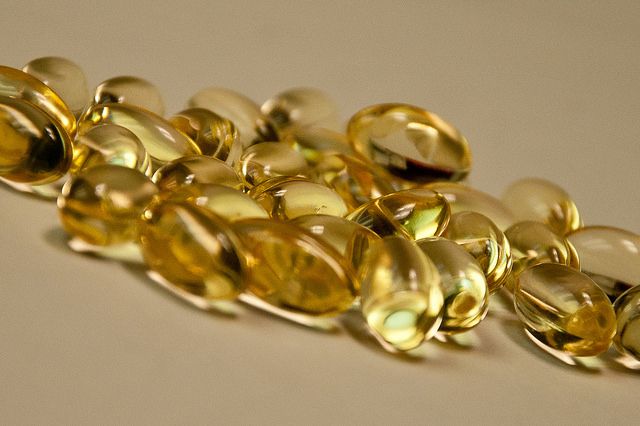Vitamin E Need Significantly Higher in People with Metabolic Syndrome, Study Suggests
The study also found that conventional approaches to measuring vitamin E levels may fail to detect when patients need more vitamin E.
Image provided by Oregon State University. Photo by John Liu, CC BY-SA 2.0

Oregon State University (OSU; Corvallis, OR) has announced new study results that suggest people with metabolic syndrome have a significantly higher need for vitamin E than healthy people-a finding that may be particularly noteworthy given the fact that vitamin E is a relatively difficult micronutrient to obtain through diet alone. What’s more, researchers also found that conventional approaches to measuring vitamin E levels may be failing to detect when patients are deficient in the nutrient.
Writing in the American Journal of Clinical Nutrition, researchers studied 20 adults who were either healthy or suffered from metabolic syndrome (10 subjects per group). The double-blind, crossover trial included four, 72-hour interventions, during which participants co-ingested 10 mg hexadeuterium-labeled RRR-α-tocopherol (vitamin E) with either nonfat milk, reduced-fat milk, whole milk, or soy milk. To determine vitamin E levels, researchers assessed α-carboxyethyl hydroxychromanol (α-CEHC) and α-carboxymethylbutyl hydroxychomanol (α-CMBHC) levels in blood and urine, which are considered to be biomarkers of vitamin E status.
Based on the presence of those biomarkers in urine, researchers found that subjects with metabolic syndrome excreted significantly less of the micronutrient-retaining between 30% and 50% more vitamin E than the healthy subjects. Excess vitamin E is excreted through the urine, so the fact that the subjects with metabolic syndrome excreted so much less vitamin E suggests they have a significantly greater need of the micronutrient, researchers explained.
“In previous work, we showed that people with metabolic syndrome had lower bioavailability of vitamin E,” said Maret Traber, a professor at OSU and an author of the study, in a press announcement. “Our current work uses a novel approach to measure how much vitamin E the body needs. This study clearly demonstrates that people with metabolic syndrome need a higher intake of this vitamin.”
Additionally, for the first time, the study results appeared to outline a flaw with conventional approaches to measuring vitamin E. While researchers were able to measure the amount of vitamin E eliminated by the body, compared to intake, by labeling vitamin E with the staple hydrogen isotope deuterium, conventional blood tests failed to find the same stark difference in vitamin E levels between healthy subjects and subjects with metabolic syndrome.
“We’ve discovered that vitamin E levels often look normal in the blood, because the micronutrient is attracted to high cholesterol and fat,” Traber said. “So vitamin E can stay at higher levels in the circulatory system and give the illusion of adequate levels, even as tissues are deficient. This basically means that conventional vitamin E blood tests as they are now being done are useless.”
The study was conducted by researchers at OSU’s Linus Pauling Institute and Ohio State University’s human nutrition program. It was supported by the National Dairy Council, the National Institutes of Health, and DSM Nutrition.
Read more:
Hops Flavonoid Shows Promise for Metabolic Syndrome
Back to Basics: Suppliers Focus on Whole-Food Vitamins, Minerals at SupplySide West
Michael Crane
Associate Editor
Nutritional Outlook Magazine
michael.crane@ubm.com
References:
Traber MG et al., “Metabolic syndrome increases dietary α-tocopherol requirements as assessed using urinary and plasma vitamin E catabolites: a double-blind, crossover clinical trial,” American Journal of Clinical Nutrition. Published online January 11, 2017.








